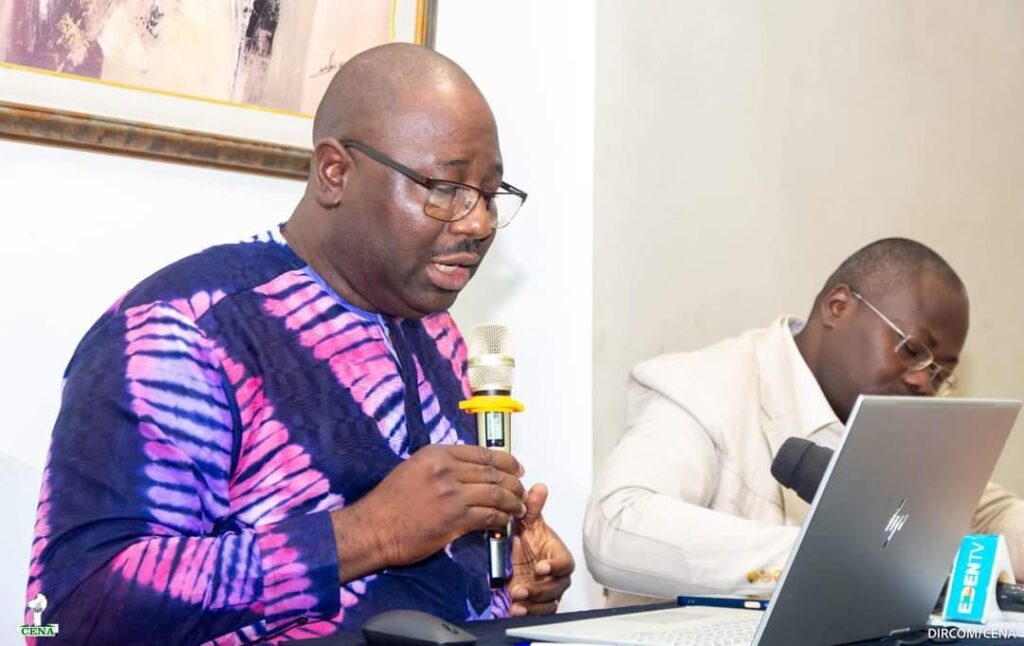It is around the preamble of the Constitution of the 11 December 1990 which solemnly affirms its "determination (…) to create a rule of law and pluralist democracy”, that was articulated in the communication presented by Gilles Badet during the training organized by the National Autonomous Electoral Commission (PRICE) for the benefit of journalists and civil society organizations (OSC). This communication focused on the theme : “The legal framework for the organization of elections in Benin”.
To explain the essence of the process and the notion of citizenship, the communicator relied on the provisions of the articles 2, 3 and 4 of the Constitution, relating to the concepts of : "government of the people, by the people and for the people”, of “national sovereignty” and “representativeness”. For Dr Gilles Badet, University Assistant (LEGS) in public law and Secretary General of the Constitutional Court, these constitutional statements are as much an illustration of what Benin appoints its representatives through free and fair elections. And to mention the article 6 : “Suffrage is universal, equal and secret”, as the final act of the expression democracy. As for the notions of representativeness, they are carried by the articles 42, 80 and 151 of the fundamental law and relating to the President of the Republic, Members of the National Assembly or administrators of local authorities.
Surfing on legislative reforms in Benin, in particular the convocation of the electorate and the regular organization of elections, in particular the legislative elections of 2023, the exhibitor emphasized the prerogatives vested in connection with the date of the electorate. Citing the article 157-3 last paragraph of the Constitution which provides : “The new provisions governing the election and the mandate of the deputies come into force on the occasion of the legislative elections of 2023 », on the other hand, the articles 7 and 147 paragraph 1 of Law No. 2019-43 of 15 November 2019 on the electoral code which provide, in the same terms, that “The coupled elections, legislative and municipal, are organized on the second Sunday of January of the election year., and the arbitration of the Constitutional Court by its decision DCC 22-065 of 24 February 2022, Dr Gilles Badet describes the legal framework for the organization of general elections in Benin.
Within the meaning of article 157-3 of the Constitution, “the new provisions” relate to the general organization of the ballot and to the mandate of the deputies and relate in particular to the date of the ballot, the allocation of seats, taking office, “the duration as well as the limitation of the mandates of the deputies ; that it follows that the article 153-2 paragraph 1 of the Constitution echoed by articles 7 and 147 paragraph 1 of Law No. 2019-43 of 15 November 2019 on the electoral code will be applicable on the occasion of the legislative elections of 2023 ».
In accordance with the decision of the constitutional judge on the electoral calendar, the linking of elections and the entry into office of deputies, the communicator notes that the question of the date of the elections and that of the taking office of the deputies does not exhaust the broader question of the legal framework for the organization of the elections. For him, organiser, it is to prepare, to plan, conduct, manage, accompany the realization of a series of operations, in this case here, electoral operations. It reassures that all these operations are governed by rules of law, whether they are constitutional, legal in the strict sense of the term, or regulatory, even, case law.
Damien TOLOMISSI

